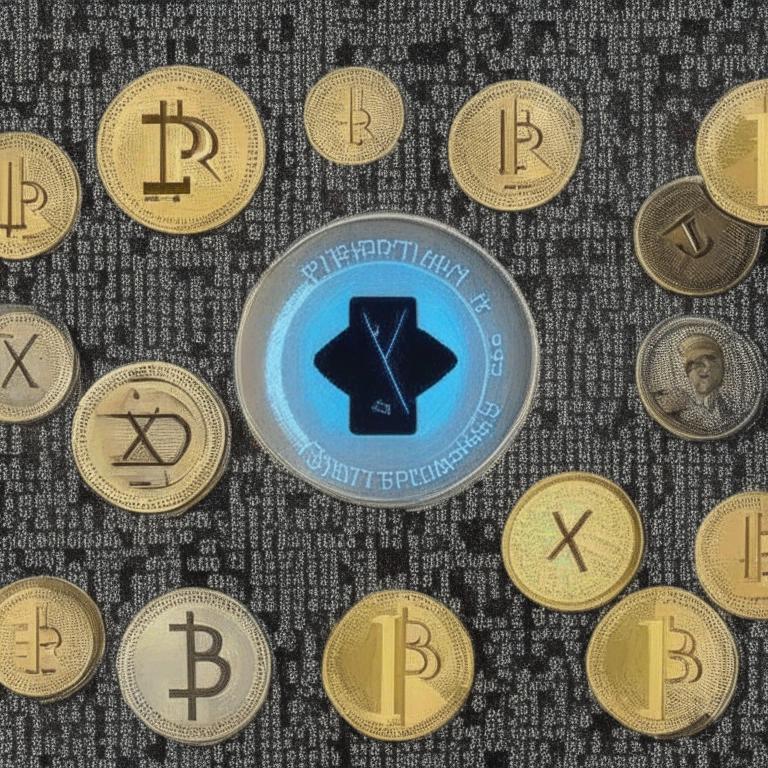
As a seasoned financial analyst and journalist, I’ve covered the advent of the Internet age, watched the dot-com bubble grow and burst, and now I’m captivated by the enigmatic world of cryptocurrencies. The landscape is shifting under our feet. Today, I bring to your attention an intriguing phenomenon: privacy coins, a segment of the crypto world that is proving to be a frontier to be explored.
Privacy Coins Explained
Defining Privacy Coins
If you’ve been following the cryptocurrency revolution, you’ve likely heard of Bitcoin, Ethereum, and possibly even Dogecoin. But beyond the mainstream cryptocurrencies lies a niche – privacy coins. These are cryptocurrencies designed to provide secure, private, and, in some cases, virtually anonymous transactions.
Privacy coins operate on the premise that financial transactions should be private – a concept not too dissimilar from the traditional cash transaction. They utilize sophisticated cryptographic techniques such as zk-SNARKs and RingCT to ensure transactional privacy.
Examples of Privacy Coins
Take Monero (XMR), one of the most popular privacy coins. Monero ensures privacy by obfuscating details of a transaction, such as the sender, recipient, and amount transferred, which are usually visible on the blockchain.
Zcash (ZEC), another privacy coin, gives users the option for “shielded” transactions, which keep transaction details off the public blockchain.
Why Privacy Coins are Gaining Attention
While cryptocurrencies at large are gaining popularity, privacy coins offer additional features that are gaining traction. They promise privacy in an increasingly surveilled digital world, attracting users who value the sanctity of their financial transactions.
Notably, privacy coins can also offer refuge to those living under authoritarian regimes or unstable economies. The ability to transact privately can protect individuals’ wealth and security in places where corruption or economic instability is the norm.
The Controversy Surrounding Privacy Coins
The Double-Edged Sword of Anonymity
However, just as privacy coins can be a force for good, they also pose substantial risks. The anonymity they provide can be exploited by those involved in illegal activities, such as money laundering or funding terrorism.
Regulatory Concerns
As privacy coins grow in popularity, they’ve also drawn the attention of regulatory bodies. The Financial Crimes Enforcement Network (FinCEN) and other similar organizations worldwide are expressing concerns over the potential misuse of these coins.
The Future of Privacy Coins
Investor Sentiment and Market Potential
Despite the controversy, the market potential for privacy coins is substantial. As an analyst, I’ve seen rising interest from investors attracted by the privacy features these coins offer. A report from JP Morgan even suggests that cryptocurrencies, including privacy coins, could become a more significant part of the financial ecosystem in the next decade.
Technological Innovations
The realm of privacy coins is not standing still; it continues to evolve technologically. With new advancements like Mimblewimble technology in Grin and Beam, we can expect privacy coins to increase in efficiency and user-friendliness.
Conclusion
Privacy coins represent a fascinating new frontier in the world of cryptocurrencies. They have the potential to reshape our ideas about financial privacy and security. However, as with any frontier, there are risks and uncertainties.
The promise of privacy coins is substantial, but so are the challenges they face. Regulation, misuse, and technical hurdles remain substantial obstacles. Nevertheless, as we forge ahead into this new frontier, one thing is certain: the journey will be anything but boring.
[1]: “zk-SNARKs: Under the Hood.” Vitalik Buterin, Blog post
[2]: “Ring Confidential Transactions.” MRL-0005, Monero
[3]: “FinCEN’s Role in the Battle Against Money Laundering.” U.S. Department of the Treasury[4]: “Grin and the Mythical Role of Money.” Grin-Mimblewimble